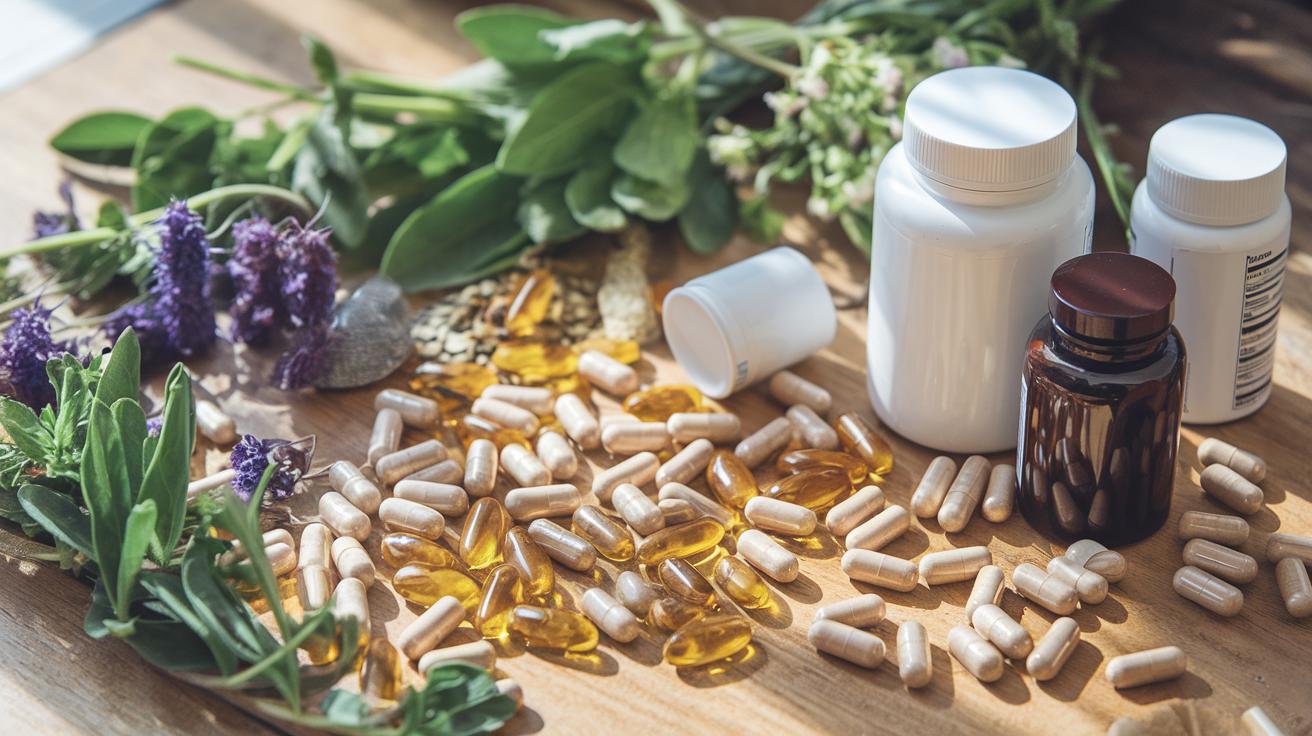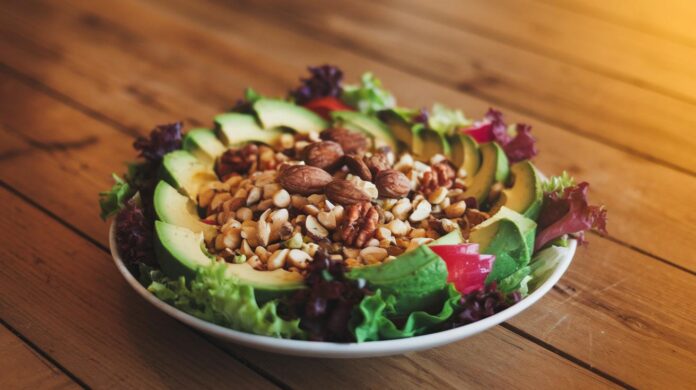Is lowering cholesterol an insurmountable challenge, or is it manageable through diet? The question puzzles many as they navigate the complex world of nutrition and health. This blog post unlocks the dietary secrets to effectively manage cholesterol, offering insights into making informed choices that contribute to a healthier heart. Readers will discover the profound impact of specific foods on cholesterol levels, translating scientific findings into practical, everyday language. Embark on a journey through dietary transformations that promise to improve heart health, empower smarter eating habits, and prevent cardiovascular diseases.
Dietary Changes to Lower Cholesterol
Diet plays a pivotal role in managing cholesterol levels. Incorporating cholesterol-lowering foods into your diet can significantly reduce low-density lipoprotein (LDL) cholesterol, often referred to as "bad" cholesterol. Foods rich in soluble fiber, polyunsaturated fats, and plant sterols and stanols are particularly effective. Soluble fiber binds cholesterol in the digestive system, aiding in its removal before it enters circulation. Polyunsaturated fats, including omega-3 fatty acids, directly lower LDL cholesterol. Plant sterols and stanols resemble cholesterol in structure and can prevent cholesterol absorption in the body.
- Oats and whole grains
- Foods rich in polyunsaturated fats (e.g., fatty fish)
- Soluble fiber-rich foods (e.g., legumes, fruits)
- Plant sterols and stanols
- Nuts and seeds
These foods lower cholesterol levels through various mechanisms. Oats and whole grains are high in soluble fiber, which forms a gel-like substance in the intestines, trapping cholesterol and bile acids and expelling them from the body. This process forces the liver to use circulating cholesterol to produce new bile acids, thus lowering LDL levels. Foods rich in polyunsaturated fats, such as fatty fish, provide omega-3 fatty acids that reduce triglycerides and LDL cholesterol. Soluble fiber-rich foods like legumes and fruits not only lower LDL cholesterol but also support gut health and reduce inflammation. Plant sterols and stanols, found in fortified foods and supplements, effectively block cholesterol absorption, while nuts and seeds offer healthy fats that help improve the cholesterol profile by raising high-density lipoprotein (HDL) cholesterol, known as "good" cholesterol.
Natural Remedies and Supplements for Reducing Cholesterol

Plant sterols and stanols are effective natural remedies for managing cholesterol levels. These compounds, structurally similar to cholesterol, compete with cholesterol for absorption in the digestive system, thereby reducing the amount of cholesterol entering the bloodstream. Studies have shown that consuming foods fortified with plant sterols and stanols can significantly lower low-density lipoprotein (LDL) cholesterol, the type associated with increased risk of cardiovascular diseases. A diet enriched with these compounds, alongside other lifestyle changes, can lead to measurable reductions in cholesterol levels within a month.
Supplements also play a role in cholesterol reduction, supporting heart health when used properly. Fish oil, rich in omega-3 fatty acids, is known to lower triglyceride levels and may have a modest impact on reducing LDL cholesterol. Psyllium husk, a soluble fiber supplement, helps lower cholesterol by binding to it in the intestines, promoting its excretion. Red yeast rice contains naturally occurring statins, compounds that inhibit cholesterol synthesis in the liver, effectively lowering LDL cholesterol. When considering supplements, it is advisable to consult healthcare professionals to ensure they are appropriate for one's health conditions and goals.
- Fish oil (Omega-3)
- Psyllium husk
- Red yeast rice
Lifestyle Changes for Effective Cholesterol Management
Regular exercise is a cornerstone in the management of cholesterol levels. How does exercise influence cholesterol? Exercise enhances physical fitness, reduces low-density lipoprotein (LDL) cholesterol, and boosts high-density lipoprotein (HDL) cholesterol. Engaging in activities such as brisk walking, cycling, or swimming for at least 150 minutes per week can significantly improve one's cholesterol profile. Exercise promotes the movement of LDL from the bloodstream to the liver, where it is processed and removed from the body. Additionally, it increases HDL cholesterol, which helps transport LDL cholesterol to the liver, further reducing the risk of arterial blockage.
Maintaining a healthy weight and steering clear of tobacco products are pivotal for effective cholesterol management. Why is a healthy weight important in cholesterol management? Excess weight contributes to elevated LDL cholesterol and triglycerides, while weight loss can decrease these levels and improve HDL cholesterol. Achieving and maintaining a healthy weight involves a balanced diet combined with regular physical activity. Smoking cessation is equally crucial, as tobacco use damages blood vessels and accelerates the accumulation of cholesterol, leading to atherosclerosis. Quitting smoking not only improves HDL cholesterol levels but also enhances overall cardiovascular health.
Lifestyle changes encompass more than just diet and exercise—they represent a comprehensive approach to managing cholesterol effectively. What lifestyle changes are necessary for cholesterol management? Incorporating regular physical activity, maintaining a healthy weight, and avoiding smoking form the triad of lifestyle interventions essential for lowering cholesterol. These changes reduce LDL cholesterol, increase HDL cholesterol, and lower triglycerides, collectively diminishing the risk of cardiovascular diseases. Consistent lifestyle modifications can lead to substantial improvements in cholesterol levels and overall heart health, emphasizing the need for long-term commitment to these practices.
Foods and Habits to Avoid for Lower Cholesterol

What are the primary dietary culprits that exacerbate cholesterol levels? Limiting foods high in saturated fats and trans fats is crucial for reducing low-density lipoprotein (LDL) cholesterol, often considered the "bad" cholesterol. Saturated fats, found in items such as butter and fatty cuts of meat, contribute to increased LDL cholesterol, which can lead to arterial blockage. Trans fats, prevalent in processed snacks and baked goods, are even more detrimental, not only raising LDL levels but also lowering high-density lipoprotein (HDL) cholesterol, the "good" cholesterol that helps remove LDL from the bloodstream. Reducing these fats in your diet is a significant step in managing cholesterol effectively.
Lifestyle choices also play a critical role in cholesterol management. What habits should be avoided to lower cholesterol without medication? Smoking and excessive alcohol consumption are two key habits that negatively impact cholesterol levels. Smoking damages blood vessels and promotes the accumulation of cholesterol, increasing the risk of atherosclerosis. Excessive alcohol intake, on the other hand, can lead to weight gain and higher triglyceride levels, exacerbating cholesterol issues. By avoiding these habits, individuals can significantly improve their cholesterol profile and reduce the risk of heart disease.
- Foods high in saturated fats (e.g., butter, fatty cuts of meat)
- Trans fats (e.g., processed snacks)
- Refined sugars (e.g., sodas, candies)
- Smoking and excessive alcohol consumption
Understanding Cholesterol: Myths and Facts
Misconceptions about cholesterol often lead to unnecessary dietary restrictions. What is a common myth about dietary cholesterol? One prevalent myth is that all cholesterol is detrimental to health. This is inaccurate, as dietary cholesterol has a minimal impact on blood cholesterol levels. The liver, which produces most of the body's cholesterol, compensates for dietary intake by adjusting its production. Therefore, while monitoring cholesterol intake is wise, eliminating cholesterol-rich foods entirely is unnecessary and might deprive the body of essential nutrients found in these foods.
Cholesterol plays a crucial role in the body, but its management is vital. Why is cholesterol important, and what are its risks? Cholesterol is essential for constructing cell membranes, producing hormones, and synthesizing vitamin D. Nevertheless, when blood cholesterol levels are elevated, particularly low-density lipoprotein (LDL) cholesterol, it can accumulate in the arteries, leading to atherosclerosis—a condition that increases the risk of heart disease and stroke. Understanding the balance between beneficial and harmful cholesterol is critical for maintaining cardiovascular health.
- Myth: All cholesterol is bad for your health.
- Fact: The body needs cholesterol for vital functions.
- Myth: Avoiding all cholesterol-rich foods will significantly lower blood cholesterol levels.
Final Words
Implementing dietary changes, including consuming oats, nuts, and polyunsaturated fats, significantly contributes to managing cholesterol levels. Natural remedies, such as plant sterols and supplements like fish oil, assist in promoting heart health. Equally crucial are lifestyle changes, with regular exercise and avoiding smoking, in lowering cholesterol. One must also be cautious of foods high in saturated and trans fats, which adversely affect cholesterol levels.
Understanding cholesterol involves dispelling myths and recognizing its essential role in bodily functions. By integrating these strategies, one has a comprehensive guide on how to lower cholesterol effectively.
FAQ
How can I lower my high cholesterol quickly?
To lower cholesterol quickly, focus on a diet high in soluble fiber and polyunsaturated fats, exercise regularly, and consider natural supplements. These steps can significantly reduce cholesterol within 30 days.
What are the worst foods for high cholesterol?
Foods high in saturated and trans fats, such as butter and processed snacks, are detrimental to cholesterol levels. Refined sugars found in sodas and candies can also elevate cholesterol.
How to reduce bad cholesterol naturally?
To naturally reduce bad cholesterol, incorporate soluble fiber-rich foods, such as legumes and fruits, and foods with polyunsaturated fats like fatty fish. Regular physical activity further aids in lowering cholesterol.
Which foods reduce cholesterol?
Foods that reduce cholesterol include oats and whole grains, omega-3 rich fish, legumes, fruits rich in soluble fiber, plant sterols and stanols, and nuts and seeds. These contribute to a healthier cholesterol profile.
How to reduce cholesterol without medication?
Reducing cholesterol without medication involves a diet rich in fiber and healthy fats, regular exercise, and lifestyle changes like quitting smoking and moderating alcohol consumption.
What reduces cholesterol quickly naturally?
Natural methods to quickly reduce cholesterol include consuming foods high in soluble fiber, omega-3 fatty acids, and making lifestyle changes such as increasing physical activity and maintaining a healthy weight.
Supplements to lower cholesterol?
Supplements that help lower cholesterol include fish oil (Omega-3), psyllium husk, and red yeast rice. These can improve cholesterol levels and support heart health when used alongside a healthy lifestyle.
Foods to avoid with high cholesterol?
Avoid foods high in saturated fats like fatty cuts of meat, trans fats in processed snacks, and refined sugars in candies. These can elevate LDL cholesterol and affect heart health.


